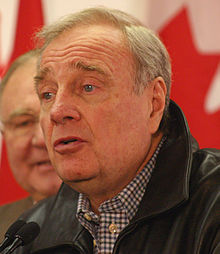An existing health-care accord between Ottawa and the provinces and territories will expire on March 31, 2014. And the long-term consequences are alarming. Canada has a public, single payer health-care system for visits to the doctor and stays in hospital. When medicare was introduced in the 1960s, its costs were shared by Ottawa and the provinces on a 50-50 basis. But that arrangement has changed and will continue to do so even more dramatically in the future, given a unilateral change announced in 2011 by Jim Flaherty, the federal finance minister who recently resigned the position.
According to a 2013 study by Canadian actuaries, Ottawa’s health-care transfers, which had once accounted for 50 percent of publicly funded health-care spending, fell to 21 percent in 2012. That percentage would drop to a mere 14 percent by 2037 under the changes announced by the federal government three years ago.
Jean-Denis Frechette, Canada’s parliamentary budget officer, says that the change announced in 2011 will set in motion Ottawa’s downloading of health-care costs to provinces and territories — most of whom can ill afford to foot the bill.
Up until now, the Canadian system has worked well. Nearly everyone has access to doctors and hospital care, and Canada’s total spending on health as a percentage of our Gross Domestic Product — more than 11 percent in 2010 — is comparable to that in similar industrialized countries and considerably less than that in the United States. But there have been problems, too, and fears that an aging population will place further stress on the system.
In 2004, then-prime minister Paul Martin negotiated an accord that added $41-billion in federal spending through 2014. Provincial and territorial governments fully expected to negotiate a new agreement by March 31 of this year. Flaherty, however, stunned them in December 2011 by unilaterally announcing terms through to 2024. He said that the provinces and territories could take it or leave it.
Prime Minister Stephen Harper has been accused of having a secret agenda to dismantle public health care. Prior to the May 2011 federal election, he attempted to put that issue to rest by promising continued financial support for public health care. In the short-term, Harper can argue that he kept that promise. But what are the consequences of the unilateral funding announcement?
In his new book, The Longer I’m Prime Minister, journalist Paul Wells writes that Harper pursues his conservative goals incrementally. The health-care announcement may well fit this mould. A frontal attack on medicare would be politically suicidal for the Conservatives, but a slowing of health transfers to the provinces over a period of many years would lead to increased frustration among people using the service — and a demand for alternatives, including more privately offered services.
This scenario is not lost on groups, such as the Canadian Health Coalition and the Council of Canadians. They’re organizing a national day of action on March 31 in support of public health care.
This article appeared on a United Church Observer blog on March 27, 2014.



